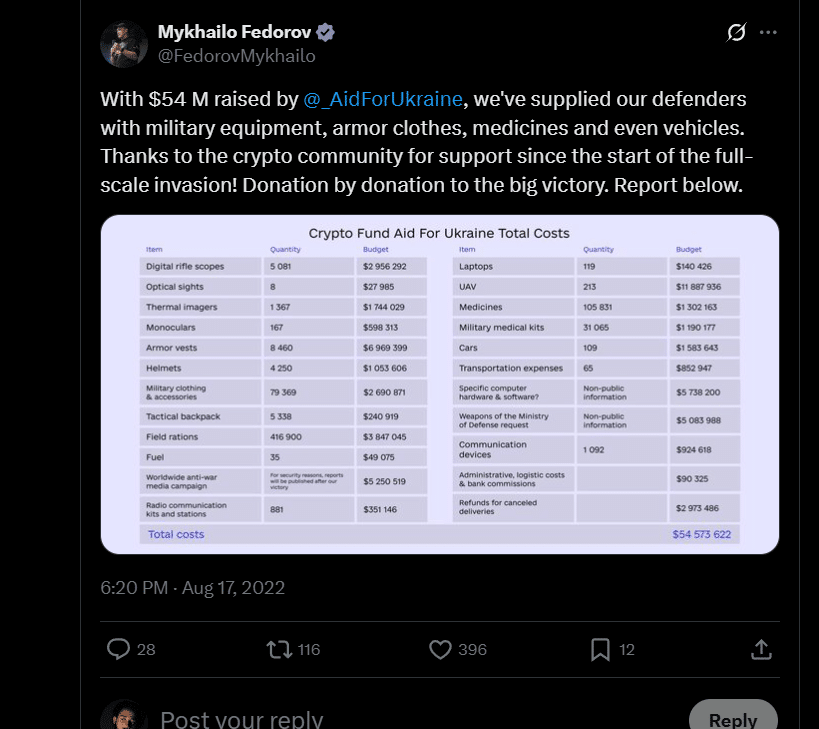From ballistic missile development in North Korea to weapons pipelines in Russia, Palantir and BTC ▲2.81% have become the modern tools for modern warfare.
Once promoted as a path to financial freedom, it has become a funding channel for sanctioned states and armed groups operating outside global oversight.
“Around 40% of the stolen crypto funds are used for the development of ballistic missiles,” – Source close to the matter on North Korea’s Lazarus Group
The same decentralized rails that move donations to dissidents also move money for nuclear development, drone procurement, and other military technology. And that’s not even getting into Palantir yet; here’s what you should know:
North Korea, Ukraine, Russia, and Hamas in the Crypto Theater
Recent years have seen North Korea’s Lazarus Group steal billions from exchanges, including a $1.5 billion heist from ByBit. Intelligence agencies say a notable share of illicit crypto funding ends up in North Korea’s nuclear weapons program.
In Ukraine, we see a similar story. The government embraced digital assets in 2022, collecting tens of millions for battlefield gear, helmets, armor vests, and rifle scopes. Today, Arkham Intelligence tracks just 0.133 BTC in Ukraine’s public wallets, sparking questions over the rest of the funds.

Russia has also tapped crypto as a workaround for sanctions, using it to sustain parts of its military campaign. Chainalysis data links dozens of sanctioned entities to direct crypto fundraising for drones, weapons, and armor. Hamas has also solicited crypto, with U.S. authorities actively seizing these funds under anti-terror financing laws.
Palantir and the Defense-Tech-Crypto Nexus
Now onto the really scary one. Palantir is the tech company that took control of the Patriot Act, the program that spied on Americans post-9/11. The project is so Orwellian that their co-founder, Peter Thiel, has literally had to defend himself as not being the antichrist in interviews.
Palantir Technologies has spent more than a decade in global security work, from counterterrorism operations in the Middle East to intelligence support in Ukraine.
The company started accepting Bitcoin as payment in 2021, but has yet to hold any on its books. Thiel has fueled speculation that the company could take a deeper position in digital assets, especially as battlefield financing shifts further into decentralized networks.
Peter Thiel predicting crypto, stablecoins, RWAs, and DeFi composability — in 1999!
Unfortunately, the one thing he gets wrong is that the money would be private.
Privacy in crypto is the next frontier. pic.twitter.com/OwmjJ3SD21
— mert | helius.dev (@0xMert_) June 28, 2025
With its $10 billion U.S. Army contract and growing role in defense strategy, Palantir sits at the intersection of military intelligence and emerging financial infrastructure.
As it stands, warfare will get increasingly technological and less personal. We’re not sure if that’s a good thing or if it’s terrifying.
EXPLORE: Tether CEO Paolo Ardoino Hopes For Net Positive From US Elections, Says Bitcoin Strategic Reserve Is A Great Idea: 99Bitcoins Exclusive
Join The 99Bitcoins News Discord Here For The Latest Market Updates
Key Takeaways
- ETF appetite is reaching record levels. U.S.-listed spot Ethereum ETFs saw a single-day net inflow of $727 million.
- The big new play leading the pack is TOKEN6900, which has just crossed $900,000 in presale funding, drawing heat as traders chase the next 100X.
The post What Palantir and Private Crypto Companies Don’t Want You to Know appeared first on 99Bitcoins.





